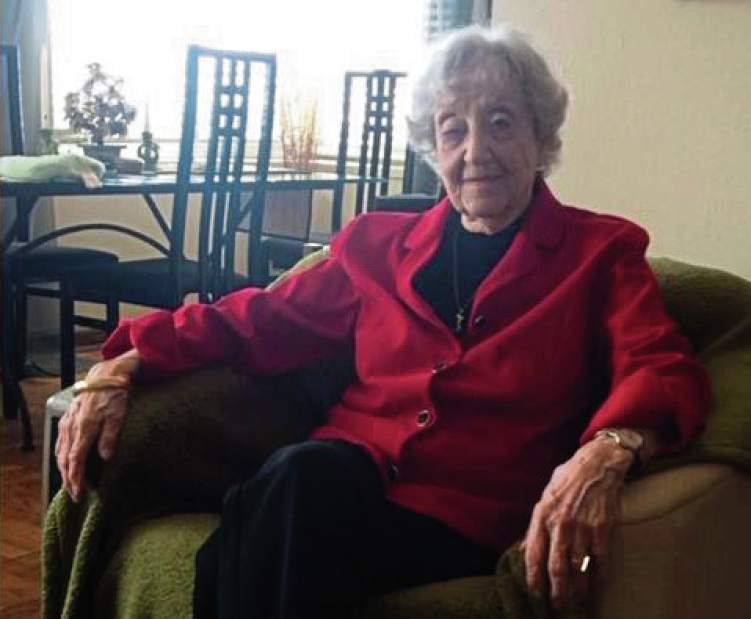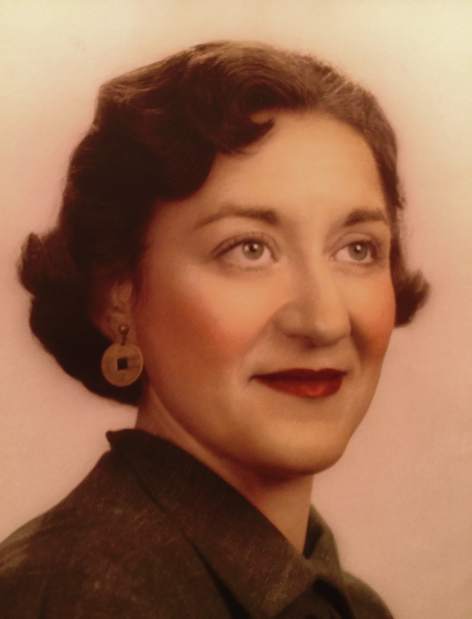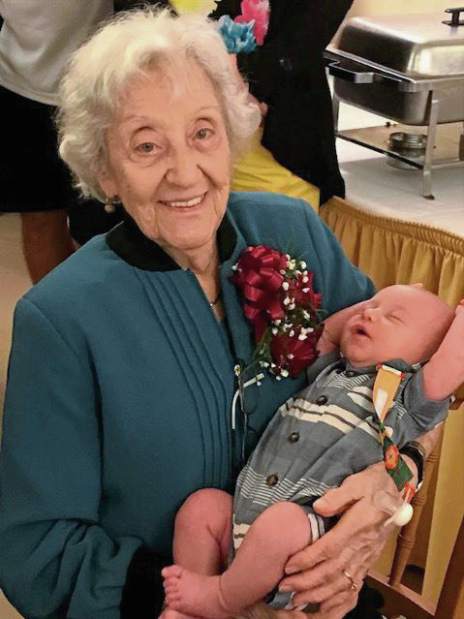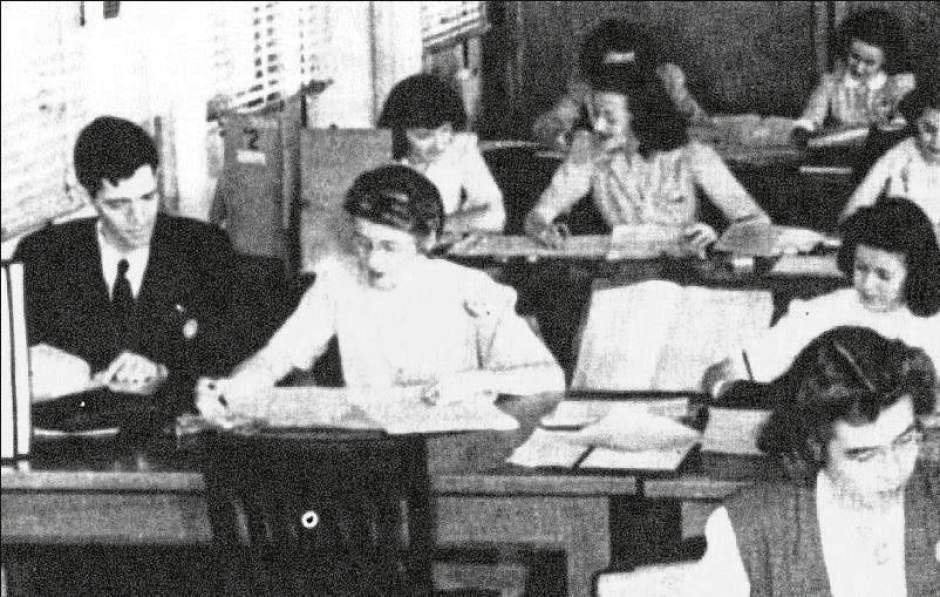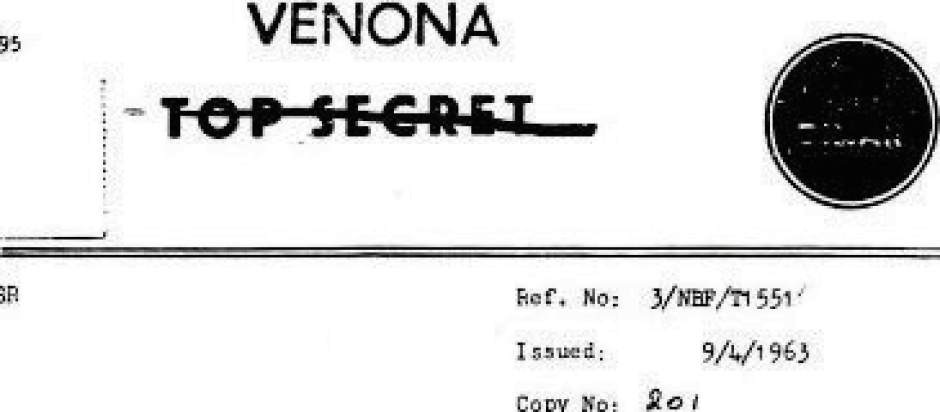Indiana County native last living member of the Venona project, a Soviet code-breaking team
Angeline Nanni didn’t want to be a beautician.
But she got her license anyway and shampooed customers at her sisters’ Blairsville beauty shop while running the business side.
It was there, while World War II raged on, that she heard of a government job opportunity in Washington, D.C. Nanni thought she’d check it out for a year.
“I just want to go see what’s going on there,” Nanni remembered telling her sisters.
That decision would change the course of the Indiana County native’s life and put her in exclusive company with a group of women who deciphered codes connected to Soviet spy communication during and after World War II. She was part of a secretive effort known as the Venona Project.
A September article in the Smithsonian magazine by Liza Mundy — following her book “ Code Girls ” published last year — profiled Nanni in her first public interview as the last living member of The Project. Nanni turned 100 in August.
In the Smithsonian article, Mundy described Nanni sitting for a test to see if she would get into the top-secret program in 1945, just after World War II had ended:
“On a piece of paper before her were 10 sets of numbers, arranged in five-digit groups. The numbers represented a coded message. Each five-digit group had a secret meaning. Below that row of 50 numbers was another row of 50, arranged in similar groups. The supervisor told them to subtract the entire bottom row from the top row, in sequence. She said something about ‘non-carrying.’
“Angie had never heard the word ‘non-carrying’ before, but as she looked at the streams of digits, something happened in her brain. She intuited that the digit 4, minus the digit 9, equaled 5, because you just borrowed an invisible 1 to go beside the top number. Simple! Angie Nanni raced through, stripping out the superfluous figures to get down to the heart of the message.”
In an interview with the Tribune-Review, Nanni was humble about her accomplishments, saying that she was simply doing her job alongside plenty of other women, many of whom became lifelong friends.
Creekside roots
Nanni recounted life growing up in Creekside in northern Indiana County.
The tiny, rural borough — a former mining town north of Indiana — had about 600 residents when she was a child. The population since has fallen to about 300, according to census figures.
At age 12, Nanni finished eighth grade. A rule at the time forbid her from going to high school at that age without an adult. Both of her parents worked, so she helped out at her father’s Creekside grocery store for a couple of years doing bookkeeping and organizing deliveries.
“He used to get me up in the morning to help with the groceries,” she recalled.
Nanni eventually graduated from Indiana High School in 1937. She left to work in Harrisburg for a year before returning to Western Pennsylvania, joining her sisters Mary and Virginia at the Blairsville salon.
She left for Washington in 1944, when she was in her mid-20s.
“I was never good at styling. My sisters were great stylists,” Nanni said.
Natural ability
Turns out, she was great at something else — the meticulous work of analyzing intercepted sets of numbers and making sense of sensitive information the Soviets sought via spies during the Cold War, according to Mundy’s research.
Per Mundy’s Smithsonian article, Nanni cracked the practice code in 1945 before any other women taking the test that day — many, if not all, of whom she figured had attended college. She had not.
“The supervisor came around and saw that she had finished before anybody else,” Mundy wrote. “‘That’s right, Angie! That’s right!’ she cried.
“Then she ran out of the room to tell her superiors they had a new candidate for the Russian code-breaking project.”
She got the analyst job.
“I just loved the work and I just decided, ‘Why go back home?’” said Nanni, who still lives in the same apartment building near Dupont Circle from when she moved to Washington.
For decades, she had to keep her work a secret from her family back home in Western Pennsylvania. In fact, when family members attended her retirement party in 1980, they had no idea from what job she was retiring.
“That was the code that these women lived by,” said Nanni’s nephew Greg Persichetti of Blairsville. His mother was Mary Nanni Persichetti, her sister.
The Army’s Signal Intelligence Service, later the National Security Agency, started the Venona project in 1943. Its work was headquartered at Arlington Hall in Virginia, according to a report from the National Security Agency’s Center for Cryptologic History.
The group successfully translated about 3,000 encrypted messages, including ones related to the Cambridge Five spy ring in the United Kingdom and major KGB espionage agents such as Klaus Fuchs, Harry Gold, David Greenglass, Theodore Hall, William Perl and Julius and Ethel Rosenberg, according to the NSA report.
Nanni worked for the project until it ended in 1980.
A family member stumbled across her name when information about Venona was declassified in 1995 and asked her about it.
“She was stunned — ‘How did you know that?’” Persichetti said she asked.
Destined for more
Nanni’s nephew Jim DeLuca noticed Mundy’s book late last year on the New York Times Bestseller list and ordered a copy. He reached out to the bestselling author to share information about his aunt. He said Mundy later got back in touch with him before reaching out to Nanni.
“It’s been fun watching her,” said DeLuca, a Blairsville native who lives near Baltimore. “She views herself as just doing her job.”
It was at her retirement party that DeLuca — who at one time lived in the same apartment building as his aunt and sometimes drove her and her friends around — realized the importance of his aunt’s job.
The full extent of what Nanni had been doing behind closed doors finally came to light this year as part of Mundy’s work, he said. Family members are proud.
“This was still her hometown,” niece Carol Persichetti, Greg’s wife, said of Blairsville and the area.
Nanni visits Southwestern Pennsylvania regularly for Christmas and more often over the years for other special occasions. She had two 100th birthday parties — one in Blairsville and another in Washington.
Nanni’s 36 years ferreting out spies was fulfilling.
Despite the whirlwind of important work, she kept the small-town values she learned growing up in Indiana County and helping run a Blairsville beauty parlor that now is someone’s home.
“She was destined for something else,” Greg Persichetti said.
Renatta Signorini is a Tribune-Review staff writer. You can contact Renatta at 724-837-5374, rsignorini@tribweb.com or via Twitter @byrenatta.

